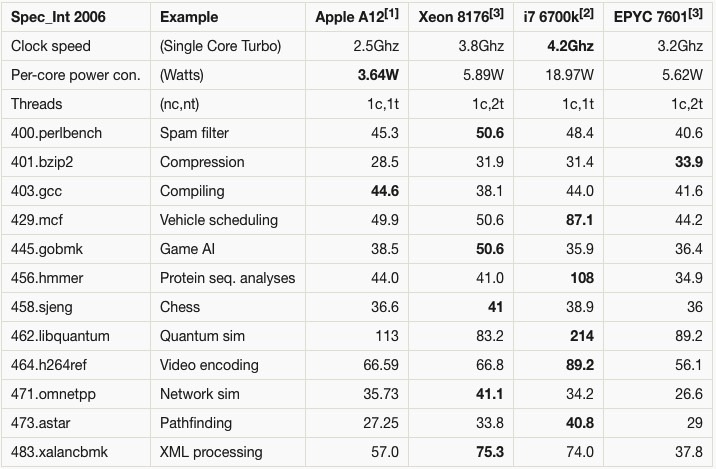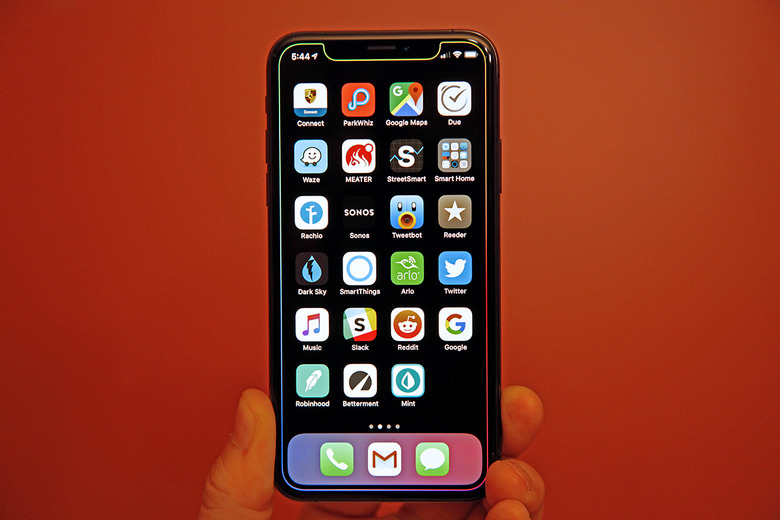The iPhone XS Processor Is So Powerful That It Could Pave The Way For An ARM MacBook
Soon after Apple unveiled the iPhone XS, XS Max, and iPhone XR last month, all sharing the same next-gen A12 bionic chip, I said that ARM MacBooks are going to happen soon, given how much the A-series chips evolved. A new comparison between the A12 chip and the top desktop processors in town shows that Apple has significantly undersold the A12, concluding that a variation of the chip could power an entry-level MacBook right now.
A few weeks ago, this tweet caught my attention, a simple comparison between the iPhone XS and a MacBook Pro:
I did a thing to convince myself the XS MAX 512 GB wasn't so expensive pic.twitter.com/ne3hiR2NR9
— Alex Barredo 📉 (@somospostpc) September 15, 2018
That tweet was posted before the iPhone XS phones shipped to users, therefore before anyone placed the A12 Bionic under a microscope for a thorough analysis and benchmark. In a highly technical post on Reddit, user WinterCharm explains that he compared the A12 chip with Intel's Xeon 8176 and Core i7-6700k, and AMD's EPYC 7601 on the Spec2006 benchmark, after he had read AnandTech's iPhone XS review. That's a great review if you're interested in more technical details about the iPhone XS, and especially about the chip.

The Redditor posted the table above, concluding that "the main takeaway here is that Apple's A12 is approaching or exceeding the performance of these competing chips in Spec2006, with lower clock speeds and less power consumption."
He went on to explain that the A12 offers other advantages, including a design that favors a higher number of instructions per cycle, as well as more cache than AMD or Intel's top chips that power servers or desktops. WinterCharm concluded that the A12 has almost caught up to x86 desktop and server CPUs. That's hardly something you can say about any other mobile processor out there. And keep in mind that the iPhone XR also packs the same chip as the iPhone XS phones, which means it'll be faster than any Android rival.
Moreover, Apple could, if it wanted to, power a MacBook with an A12X variation right now, he says:
Based on power envelopes alone, Apple could already make an A12X based 3-core fanless MacBook with 11W power envelope and throw in 6 little cores for efficiency. The battery life would be amazing. In a few generations, they might be able to do this with a higher end MacBook Pro, throwing 8 (29W) big cores, just based on the current thermals and cooling systems available.
That's just speculation at this point. Apple's competitors are already building Windows 10 machines based on ARM chips from Qualcomm. And we saw plenty of reports saying that Apple is actively developing Macs on ARM, a move that could help it reduce its reliance on Intel silicon. But Apple has yet to confirm anything.
The Redditor's prediction for the future is that Apple will "will pull ahead in the next two generations, and in three years we could see the first ARM Mac, lining up with the potential release of Marzipan, allowing for iOS-first (and therefore ARM-first) universal apps to be deployed across the ecosystem."
The full Reddit post is worth a read, and so is AnandTech in-depth review.
